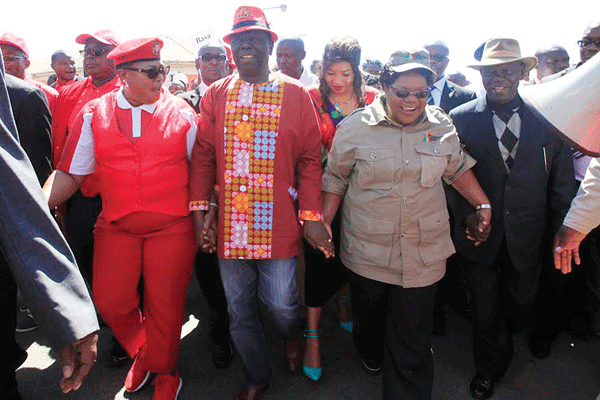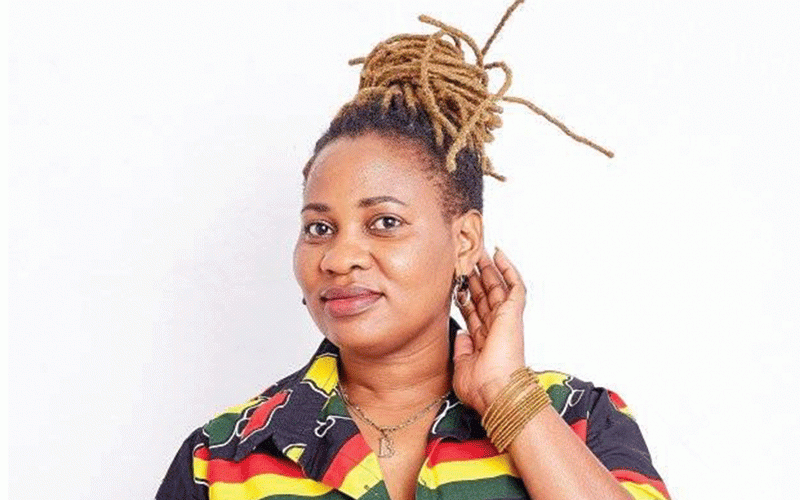
ZIMBABWEANS have given their seal of approval to efforts by the country’s opposition parties to coalesce ahead of next year’s elections, a report has revealed.
BY RICHARD CHIDZA
The report — which is part of a survey done by the Mass Public Opinion Institute (MPOI) on behalf of Afrobarometer early this year — claims that Zimbabweans were terrified of criticising President Robert Mugabe, but interestingly thought he was doing well as a leader.
“A plurality of adult Zimbabweans (45%) agree that opposition political parties should work together under a grand coalition in order for them to win the 2018 harmonised elections,” the report said.
Amid pressure from ordinary citizens, MDC-T leader Morgan Tsvangirai has taken the initiative in seeking to bring together the country’s fractured opposition with a series of memoranda of understanding first with National People’s Party president Joice Mujuru. Tsvangirai has also mended fences with MDC leader Welshman Ncube with indications pointing to a pact involving former MDC-T secretary-general and now People’s Democratic Party leader Tendai Biti.
Results of the survey also showed that the majority of Zimbabweans were terrified of Mugabe’s government.
“A majority of Zimbabweans (78%) are not very/at all free to criticise President Robert Mugabe. Midlands province has the highest proportion of residents (78%), while Mashonaland West province has the least proportion (41%) of residents who are ‘not at all’ feel free to criticise the President,” the report said.
- Chamisa under fire over US$120K donation
- Mavhunga puts DeMbare into Chibuku quarterfinals
- Pension funds bet on Cabora Bassa oilfields
- Councils defy govt fire tender directive
Keep Reading
Ironically, the same areas like the Midlands where Mugabe was feared the most showed that the Zanu PF leader had done well and commanded greater support.
According to the survey, at least 62% of citizens, 59% of them from urban settlements with post-secondary education, showed support for the grand coalition.
“Majorities are supportive in Matabeleland North (52%), Harare (62%) and Bulawayo (64%) provinces. A plurality of adult Zimbabweans (45%) agrees that opposition political parties should work together under a grand coalition in order for them to win the 2018 harmonised elections.
“Close to half of adult citizens feel that the opposition has a realistic chance of winning next year’s presidential elections if they form a grand coalition. Despite this, the ruling Zanu PF has an edge over the MDC-T and other opposition political parties,” the report said.
“Survey shows that Zanu PF has an edge if presidential elections were to be held tomorrow.”
The Afrobarometer report — which has touched off a political storm after showing that Mugabe still has the trust of the people despite the country’s socio-economic problems — indicated the Zanu PF leader would triumph if snap elections were held.
“Asked which party’s candidate one would vote for in a hypothetical presidential election a day after the survey, 38% said Zanu PF, 24% refused to answer, 16% said MDC-T, 11% said they would not vote and 4% said they would vote for a ZimPF [united Zimbabwe People First before Mujuru walked away] candidate and 2% said they would vote for other parties,” the report added.
However, while indicating Mugabe’s Zanu PF still commanded massive support in rural areas, the survey showed that a staggering (31%) of the 24% who refused to entertain questions around the country’s political leadership were urban-based.












